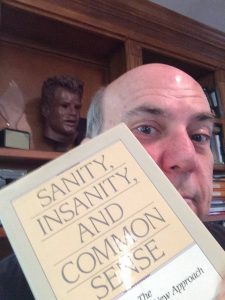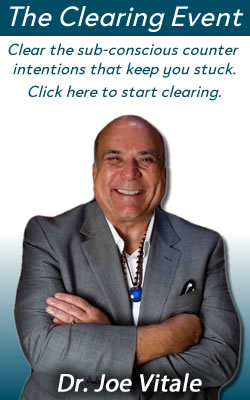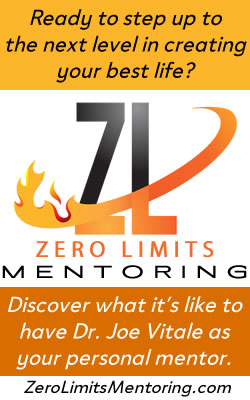Tag: perceptions
Your Reality vs Mine
Being a student of psychology for decades, I’m still reading anything I can find, old or new, to help me better understand myself and others.
Most recently I devoured Sanity, Insanity, and Common Sense, a 1987 book by Rick Suarez, Roger Mills, and Darlene Stewart.
The book describes a “Psychology of Mind” that I love.
Today you can easily find books echoing the principles in Sanity, Insanity, and Common Sense but I love the original for more or less introducing the ideas to the mental health community back in the 1980s.
In short, the four key points in the book (in my own words) are these:
1. Thought shapes reality.
2. Each person lives in a separate reality.
3. There are levels of consciousness.
4. Feelings and emotions reveal the level of consciousness.
By themselves, standing stark naked on the page, they may not seem like much.
You may have even heard of them before.
But let’s go deeper:
1. Thought shapes reality.
You know this one. You’ve heard it from me and other authors. But to bring it alive, you have to realize that your thoughts are creating your reality right now. No matter what your explanation is for your life, it is being created mostly by thought. Yes, you have behaviors and actions, but they are first triggered by thoughts. Thought comes first. Thought shapes reality. Thought is where you change reality.
2. Each person lives in a separate reality.
This was a major a-ha insight for me. The authors prove that each person lives in a perceived reality created by their unique set of thoughts. Their perception creates their version of reality. You do it. I do it. We all do it. But virtually no one is aware that they do it. Understanding that the people you deal with aren’t thinking like you, and they in fact view the world differently than you do, explains the challenge we have in communicating with and understanding each other. You are from one planet; I am from another. Now, let’s talk. See the problem?
3. There are levels of consciousness.
More recent authors, such as the late David Hawkins, have explained that there are levels of awareness or consciousness. Lower levels are where you’ll find revenge, greed, depression. Higher levels are where you experience love, compassion, understanding. Just knowing there are levels can help you understand your life in any moment. If you are feeling down, you need to think-do-be something up the ladder of consciousness. It may be as simple as taking a nap. It may be a need for a new mental frame for what you are experiencing. The idea, of course, is to live from higher states of consciousness. You’ll be happier there. And so will everyone around you.
4. Feelings and emotions reveal the level of consciousness.
I loved this insight, as well. It makes it easier to spot your own level of consciousness. If you are in a bad mood, or feeling angry or insecure, you have dropped to a lower level. If you feel happy, loving, friendly, then you went higher. In other words, your very feelings are the indicators of your current spot on the levels of consciousness. Your thought created those feelings, but you can use the feelings/emotions to hone in on the originating thought that you might now need to change.
As Sanity, Insanity, and Common Sense explained, awareness alone is a profound tool for awakening and understanding, and for greater motivation and productivity.
Because the 1987 book was written for mental health professionals, the authors used examples from management, therapy, hospitals and other organizations to show that old ways of trying to change will always fail because they usually don’t take into account the Psychology of Mind.
What’s needed at home and at work is awareness of how thought works, how it creates separate realities in different people, how our emotions reveal our place in consciousness, and more.
One thing to keep in mind is that when you (or anyone) drops into a lower level of consciousness, the key feeling you experience is insecurity.
And when you (or anyone) feel insecure, you won’t think or act clearly.
At that point, you will be unhappy (though you may call it sad, mad, or any other word to describe it).
And this is why the book is subtitled “The Groundbreaking New Approach to Happiness.”
It’s a guide to mental health, and mental health is described as a higher consciousness state of happiness.
A few gems from the book to chew on:
“The fact is that in separate realities, everyone is right and everyone is telling the truth as they see it.”
“Stress is a byproduct of thinking; it is not inherent in situations or circumstances.”
“A reality is an apparency. It is how something appears to be.”
So, your reality is different because your thoughts are different.
And you can use your feelings to reveal your thoughts.
In other words, if you feel “low” or “off,” it simply tips your place in thought.
You’ve heard the answer before: change your thinking.
Or if you are frustrated by someone performing poorly at work or school or home, your understanding of their thought and their reality, can bring you more compassion and understanding in dealing with them.
And ultimately, throughout all this dance of partners in separate realities, we have to remind ourselves that the one who needs to change is YOU.
And me.
This is very similar to the theory explained in my bestselling book with Dr. Hew Len, Zero Limits, as well as the eye-opening sequel, AT Zero.
You are entirely responsible for what you perceive.
Why?
Because what you perceive is through your mindset.
You filter objective reality through your mindset/paradigm/beliefs and what you actually see is your own version of reality.
The thing is, your neighbor is doing the same thing.
And so is your boss.
And your spouse.
It takes understanding and compassion to guide ourselves through this maze, but the authors point out that when you lift your own mindset to higher consciousness, then you will more clearly see where others are, and you will more naturally influence them lovingly and organically.
I loved the book but am not asking you to go read it. (The book is now out of print, but you can find used copies on eBay and Amazon.)
Instead, absorb the four principles of the Psychology of Mind and note how you feel throughout the day.
Just stop and take stock.
What are you feeling?
Your feeling is an indicator of your state of consciousness, and your consciousness can be changed with a thought.
What do you think?
Ao Akua,
PS – I’ve written about these concepts in numerous places. You might want to check out The Awakening Course.
Arguing for Limits
When I was in Kuwait, speaking on positive thinking and happiness, a skeptical man in the audience politely asked, “Where is the evidence that happiness will make a positive difference in my life?”
I smiled.
Even though two other speakers at the same event were recognized psychologists on happiness (one a Harvard graduate), and had already delivered compelling evidence for the benefits of positive thinking and positive psychology, this man wanted something more.
Well, I had an answer for him.
“You can find evidence for whatever you want to believe,” I replied.
“If you want to believe happiness works, then research online and you’ll find evidence to support your belief,” I continued.
“If you want to believe unhappiness is better, then research online and you can find evidence to support that belief,” I added.
And then I delivered the punch line.
“If there is evidence for both happiness and unhappiness as ways of life, which are you going to choose?”
The crowd applauded.
I don’t know if the man got the point or not. The crowd seemed to. But the polite skeptic was coming from a mindset that was arguing for his own limitations.
After all, why ask for proof that happiness is better unless you want to remain unhappy?
And why would anyone want to remain unhappy?
Author Richard Bach famously wrote, “Argue for your limitations and sure enough, they’re yours.”
Many people want to stay unhappy because they believe it serves them.
They believe it keeps them “real.”
They believe if they get happy, they may not do anything, or may be denying “reality.”
What they don’t seem to understand is unhappy people are less productive, practical, realistic, healthy, humorous or social.
I learned this back in the 1980s, when I studied with Barry Neil Kaufman, author of such books as To Love Is to Be Happy With.
Barry explained there are myths around unhappiness.
One of them is the belief that unhappiness will motivate you while happiness will not.
As Barry explained it, the truth is that unhappiness will keep you stuck, while happiness will propel you forward by the simple joy of living.
My understanding of limiting beliefs went even deeper when I started working with Mandy Evans, who I often call the original Miracles Coach.
Mandy says some of our top limiting beliefs are —
1. I should be able to make lots of money, but I can’t.
2. I do not deserve success and happiness.
3. I need to think positive every day to change my limiting beliefs.
4. If someone cheats me or betrays me I have to get even or live with resentment.
5. If I were happy, I wouldn’t do anything.
6. Feeling bad motivates me to change things.
7. If I do not give people what they want, I will end up all alone.
8. I should have worked this out by now.
9. I cannot earn a living doing something I like.
10. Better stop wanting; if you get your hopes up, you’ll just get hurt.
Mandy says for each belief that seems true, ask yourself three questions:
1. Why do I believe that?
2. What might happen if I didn’t believe that?
3. Is that true?
To better grasp all of this, read Mandy’s books, Emotional Options and Travelling Free, available from Amazon, bookstores, or http://mandyevans.com/the-breakout-store
As I’ve often said, we live in a belief driven universe; change your beliefs and you get a different universe.
You are welcome to argue for your limitations, of course, or to delete them and believe something better.
Your choice.
Ao Akua,
joe
PS — The best way to pinpoint and clear limiting beliefs is with a Miracles Coach. Just click right here.









